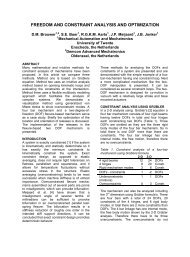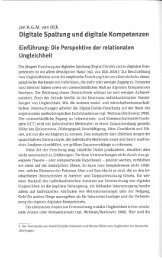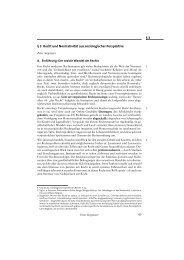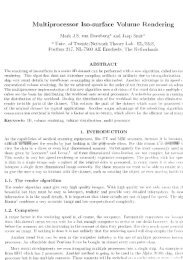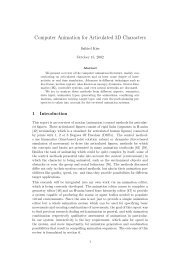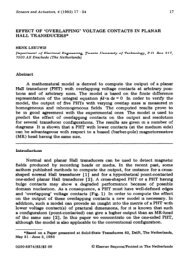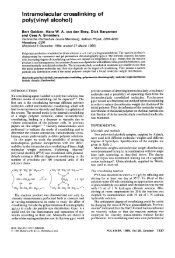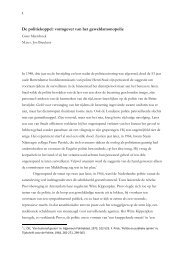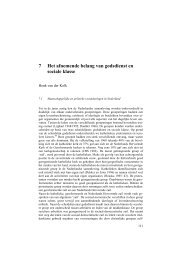Innovation and institutional change: the transition to a sustainable ...
Innovation and institutional change: the transition to a sustainable ...
Innovation and institutional change: the transition to a sustainable ...
You also want an ePaper? Increase the reach of your titles
YUMPU automatically turns print PDFs into web optimized ePapers that Google loves.
Stability <strong>and</strong> transformation in <strong>the</strong> electricity system 85<br />
Institutional setting<br />
The Dutch electricity industry consisted of a varied collection of<br />
predominantly regional operating companies, with integrated production <strong>and</strong><br />
distribution companies <strong>and</strong> distribution companies, all with municipal or<br />
provincial shareholders. Provincial <strong>and</strong> municipal shareholders <strong>to</strong> a large<br />
extent determined policy of <strong>the</strong> electricity industry, with a primary focus on<br />
social <strong>and</strong> political goals, <strong>the</strong> public task of <strong>the</strong> industry. In electricity<br />
production security of supply <strong>and</strong> reliability were dominant fac<strong>to</strong>rs. The<br />
companies also had an important role in regional employment. The national<br />
government held limited influence <strong>and</strong> control on electricity supply, but had<br />
taken initiatives in <strong>the</strong> early sixties <strong>to</strong> streng<strong>the</strong>n its control of <strong>the</strong> electricity<br />
system. This intention was also a consequence of <strong>the</strong> natural gas discovery in<br />
<strong>the</strong> North of <strong>the</strong> Ne<strong>the</strong>rl<strong>and</strong>s, <strong>and</strong> <strong>the</strong> centralised <strong>institutional</strong> organisation<br />
set up for gas supply served as an example for <strong>the</strong> electricity industry which<br />
was foremost locally <strong>and</strong> regionally organised. Also <strong>the</strong> intention <strong>to</strong> develop<br />
a national nuclear industry motivated <strong>the</strong> government initiative <strong>to</strong> reorganise<br />
<strong>the</strong> Dutch electricity system in order <strong>to</strong> create <strong>the</strong> organisational conditions<br />
for <strong>the</strong> application of nuclear technology. The process of reorganisation<br />
initiated in <strong>the</strong> beginning of <strong>the</strong> sixties would last around 30 years because of<br />
discord between government <strong>and</strong> <strong>the</strong> electricity industry. Especially <strong>the</strong><br />
electricity producers have resisted government dem<strong>and</strong>s for increased<br />
centralisation <strong>and</strong> co-operation in production because it would reduce <strong>the</strong>ir<br />
au<strong>to</strong>nomy. Moreover, at <strong>the</strong> beginning of <strong>the</strong> seventies, <strong>the</strong> Ne<strong>the</strong>rl<strong>and</strong>s was<br />
on <strong>the</strong> verge of two oil crises that would overshadow reorganisation in <strong>the</strong><br />
electricity system. Until <strong>the</strong>n economic developments had mainly facilitated<br />
fur<strong>the</strong>r expansion of <strong>the</strong> electricity sec<strong>to</strong>r, <strong>and</strong> a closed social network of<br />
regime ac<strong>to</strong>rs emerged which were mainly involved in optimisation of largescale<br />
electricity generation <strong>and</strong> transmission. The oil crises of <strong>the</strong> seventies<br />
put first dents in <strong>the</strong> stable sociotechnical configuration <strong>and</strong> in <strong>the</strong><br />
streamlined parallel developments along dimensions of <strong>the</strong> regime. It<br />
especially challenged <strong>the</strong> growth paradigm that had been a corners<strong>to</strong>ne of<br />
developments in <strong>the</strong> electricity regime as <strong>the</strong> notion of energy saving gained<br />
significance. A second important development was <strong>the</strong> emergence of <strong>the</strong> gas<br />
turbine as a niche that in <strong>the</strong> course of decades <strong>change</strong>d <strong>the</strong> face of <strong>the</strong><br />
electricity regime.



